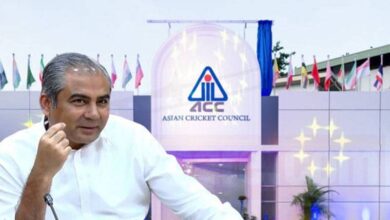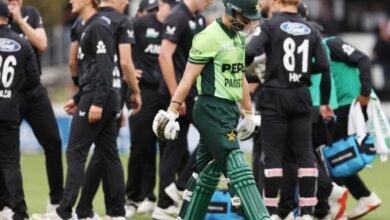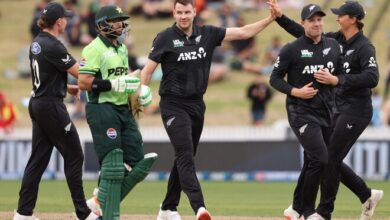No more financial incentives for teams touring Pakistan – Ehsan Mani


In its bid to bring international cricket back to Pakistan, the PCB has been spending substantially on players and boards over the years. Whenever international or PSL games have been played in the country since 2015, the PCB has spent millions of dollars to make some headway towards changing perceptions of visiting teams. Now, though, the PCB chairman Ehsan Mani has said this spending can only attain “short-term goals”, and that his board wants to build a firmer foundation of trust and commitment for longer-term benefits.
There was no major international cricket in Pakistan for six years following the 2009 attack on Sri Lanka’s team bus in Lahore. Pakistan were forced to play their home games at neutral venues – mostly in the UAE – but at the same time the PCB kept trying to convince teams to tour Pakistan, and financial rewards played a key part in its efforts finally bearing fruit.
Zimbabwe came first, in 2015, with each of their players receiving USD 12,500. Overseas players who played the Pakistan Super League (PSL) final in 2017 were also paid lucrative sums to make a one-day trip to Pakistan. The World XI toured Pakistan in 2017, with each player offered USD 100,000 to make the trip to Lahore. Last year, members of a second-string West Indies side received USD 25,000 each when they visited for a three-match T20I series.
This has been the norm over the years, but Mani, who took over from Najam Sethi as PCB chairman last year, has ended the practice, and the Sri Lanka players who are in Pakistan right now have not been offered extra financial incentives by the PCB.
“Transparency and merit are very important aspect for me,” Mani said in Lahore, during the launch of the logo for the upcoming Pakistan-Sri Lanka series. “Whoever wants to come Pakistan we will welcome them wholeheartedly, but whoever is coming for money, his commitment isn’t for Pakistan.
“So what is more important for us is to mollify everyone [and tell them] that Pakistan is a safe country. With money we can attain short-term goals, but we want to build a solid foundation to make a longer-term impact for the sake of the betterment of Pakistan cricket.”
After a brief period of uncertainty, Sri Lanka’s tour is finally underway, with the team already in Karachi, and Pakistan are hosting their longest bilateral series in a decade. The National Stadium in Karachi will host the ODIs while the Gaddafi Stadium in Lahore will host the T20Is.
The ODIs will be the first to take place in Pakistan since Zimbabwe toured for a three-match series in 2015. Apart from that series, the only high-profile matches in Pakistan to feature overseas players in recent times have been been T20Is or PSL games.
Mani noted the steady increase in the number of PSL matches played in Pakistan, season after season, as a positive sign for the future.
“We have been working for long now and the PSL games did a lot to help us. This year in PSL 32 to 35 overseas players came, and they all came out of their own interest. Their only complaint was about having too much security cover; they wanted to go out and socialise with free movement, but it was a constraint put up by our security officials. They wanted to assure [the players’] security and make them comfortable to start with. That’s why they were escorted everywhere with security [personnel].”
Sri Lanka’s current tour is their second since the 2009 attack. They toured Pakistan for one T20I in Lahore in 2017, amid extraordinary security arrangements, with a 3-4 km radius around the stadium virtually locked down, with over 12,000 security personnel deployed at various locations.
The arrangements will be stringent this time too, with the Sri Lanka team receiving the same level of security afforded to visiting heads of state.
Given these arrangements, Mani understands that players are limited to being either at the stadium or at their hotel, but is hopeful that a greater level of normalcy will return in time.
“I am hopeful the time will come very soon when things will normalise here too, and players can have their freedom and feel totally relaxed the way they do in other countries,” Mani said. “This year cricket Australia CEO Kevin Roberts came along with the security head, now ECB CEO Tom Harrison with one board director, and Cricket Ireland’s chief and CEO are coming, so now people have started to feel comfortable and can make an easy decision to make a trip to Pakistan. I tell them the perception you have formed, living in your country, will change when you personally visit Pakistan.
“No country these days we can go to assuming that everything will be fine, after the recent attacks in Colombo and Christchurch. Pakistan over the last one decade has experienced a lot, but with time we have become strong in managing security. We are right up there with the best countries in the world. This series is a small step but very important towards normalising the situation and bringing back full international cricket in the country.”
Earlier this month, Mani had said Pakistan would want to play the Test leg of the Sri Lanka series – which has been postponed to December – at home as well, and not at a neutral venue.
He reiterated that stand, and hoped Pakistan would soon be able to play all their home series at home.
“We have been playing in front of virtually empty stadiums [in the UAE], which wasn’t a cause of motivation, and was a soul-destroying thing to see,” Mani said. “In Pakistan we will have people coming to the stadium not only to support their own team but also applaud Sri Lanka for taking a big step to help us as a country.”




